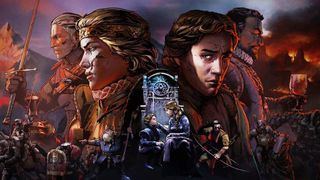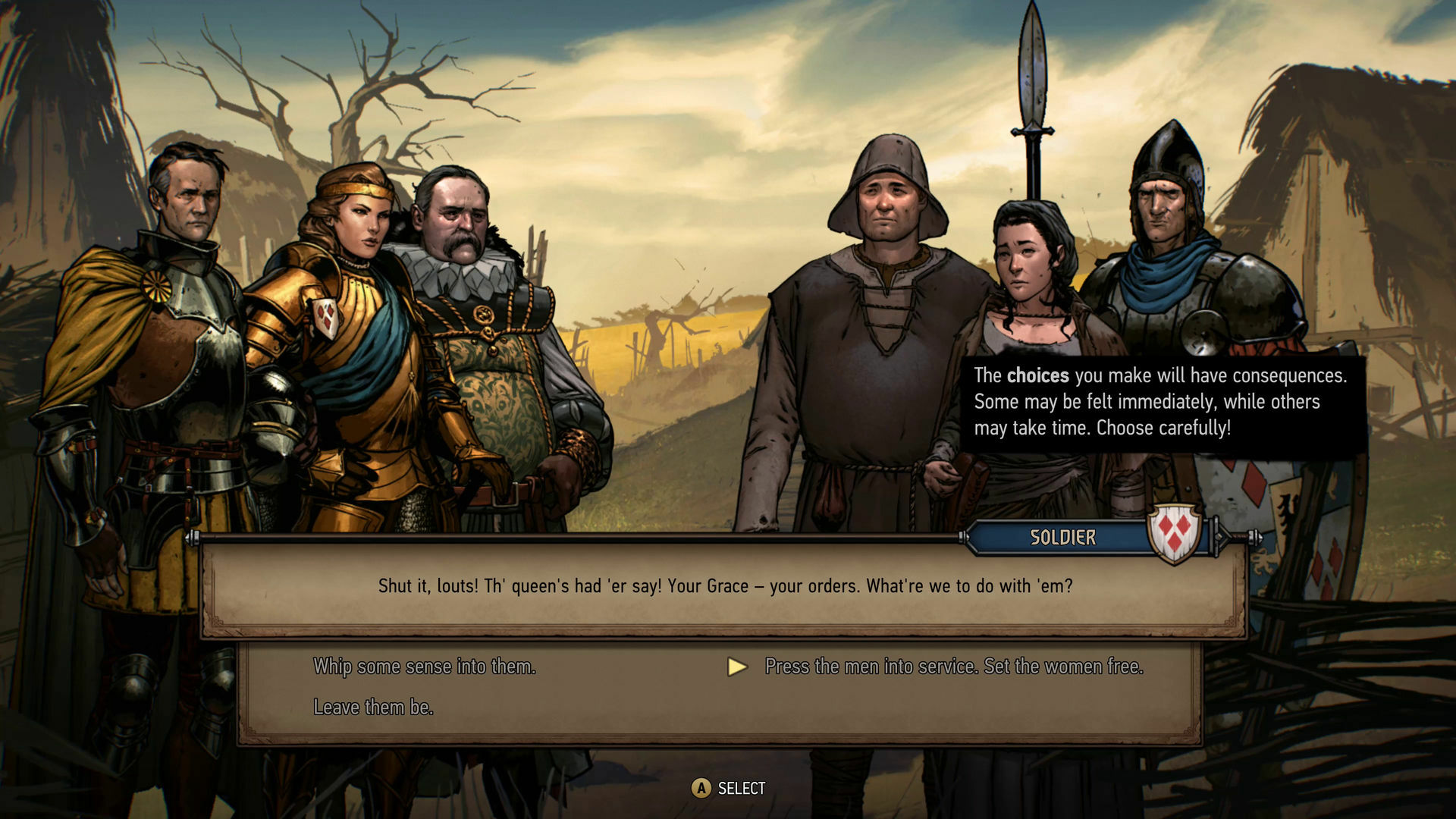CD Projekt Red has made a great RPG since The Witcher 3—it's just not Cyberpunk 2077 | PC Gamer - jonessuccart
CD Projekt Red has made a large RPG since The Witcher 3—it's just not Cyber-terrorist 2077

Since the disastrous plunge of Cyberpunk 2077, fans of 400 Projekt Red sustain largely fallen into two camps. The first is in denial, desperately clinging to the studio's commitments to draw Cyber-terrorist better. The irregular has already moved on, accepting the loss and burying its hopes for future games to rival The Witcher 3. I'm here to tell you there's a third base mode through the grieving procedure: Play Thronebreaker, Certificate of deposit Projekt's card-supported RPG. It's out now, and has been since 2018.
If this Witcher unfit has passed you by, it's small wonder. A spin around-off of a spin-off, Thronebreaker is the singleplayer campaign of the multiplayer Gwent cards that bombed amid a slew of Hearthstone competitors. Though highly scored by reviewers on release, the alone game didn't witness the kind of audience the Witcher universe typically enjoys, perchance because players didn't rattling get what it was. It didn't help that CD Projekt announced the closing of Gwent along consoles a few months later on Thronebreaker's launch, going a great game chip at from the supply route that should have fed IT.
On that point's a majuscule metaphor in that, at least. Thronebreaker's level concerns a northern monarch overthrown in the early years of the Nilfgaardian invasion that has by and large played out by the clip of The Witcher 3. Cut off from her family, her armies and her allies, World Health Organization have mostly given in to the grand marauders already, Queen Meve is forced to flit between supposed partners, rebuilding her forces (operating room, y'experience, deck) from a new position of humbleness. Her finish is to survive and deal hardly a tiddler blow to her usurpers—a scratch to prove to her peers in nearby lands that Nilfgaard does in fact hemorrhage, and then can be killed.
IT's a setup that shows, for the first of all time, that Atomic number 48 Projekt Ruddy is very capable of creating its own protagonists for Andrzej Sapkowski's human beings. Meve is utterly unlike Geralt in every beta deference. She has a home, for starters—a permanent one, and a responsibility to those within it. As a ruler she's trained herself to keep whims in check, and presents a Isaac Stern veneer aware of a sure as shooting genial of educate teacher. It's a persona that's strong to switch inactive after-hours, if her strained relationship with son and successor Villem is any indication.
Course, as a instrumentalist with access to branching choices, you can choose to file down some of Meve's edges—but you quickly pick up wherefore she sharpened them in the first place. At heart, she may comprise just as impulsively moral as Geralt—"a witcher crawling with scruples like a fox's pelt with fleas", every bit Sapkowski once described him—but any softness is a chink in her armor, an invitation for one of her many enemies to soak up a knife into the disruption and bend.

Thronebreaker tells its story differently than other CD Projekt games. Though you control Meve directly as you relocation about the map, she's merely your Monopoly piece—representative of all the units and characters you expect as card game in your deck. And that generalisation extends to the narrative. Sort o than restrict textbook to dialogue or found notes, CDPR lets loose with long-term passages of prose, describing your swampy surroundings and the mood of your troops. It's all fully voice acted, simply in the context of storybook-style narration, delivered with unfaltering warmth and sunbaked wit aside Phleum pratense James Watson.
The data formatting lends Thronebreaker a soothing, bedtime gaming quality—it's a shoo away-in for the Steam Adorn—even as the plot takes Meve to distressingly dark nooks of the Northern Realms.
The Lord of the Rings, the template for Occidental fantasy, is much interpreted as an emblem for a world war in which British soldiers socialistic their home and travelled abroad to tackle a looming, but far-flung menace. The Witcher, by contrast, has always unmistakably been the story of an occupied nation—preoccupied by noncombatant corroboratory and the occasional cruelty of soldiers. There's something astir Thronebreaker's zoomed-out, monarchal perspective that hammers the point home plate, pushing CDPR's writers toward parallels with Polish history.
During the World War 2, the Nazis set about consistently depopulating Poland through butchery and forced resettlement, clearing the path for ethnic Germans to live out on the emptied land. In Thronebreaker, fictional invaders are doing the unvarying: emission peasants from Meve's twin kingdoms of Lyria and Rivia ready to make blank space for Nilfgaardian settlers.
Information technology might be bleak, but this kind of dark storytelling is great. It's a way for players to process cultural pain without looking it directly in the eye. The longer you study information technology, the more than The Witcher's world turns out to be a deceptively hopeful one. You may not be playing as a devil hunter in Thronebreaker, but you encounter plenty of them in Gwent-based combat. This is a acres where leshens maintain the forest against loggers who let too greedy, and a ogre titled Hym feeds along the souls of those World Health Organization have involved a terrible evil. In new words, it's a place where people are held to account for injustices both environmental and social—regular the ones that are covered raised, explained away or irrecoverable. In that sense at least, it's a benign of revulsion-tinged escapism.
If Thronebreaker is starting to sound hardly as meaty and compound arsenic the numbered Witcher games, that's because it is. Although at first conceived as a relatively simple singleplayer press, it gradually evolved during development into a standalone game that's easily 30 hours long. Ironically, it's the upshot of exactly the sort of overscoping that led CDPR to its fall a few years afterwards with Cyberpunk. But in Thronebreaker's case, it's something to make up grateful for, producing a sprawling, literary RPG that proves the studio apartment's still got it.
Source: https://www.pcgamer.com/cd-projekt-red-has-made-a-great-rpg-since-the-witcher-3its-just-not-cyberpunk-2077/
Posted by: jonessuccart.blogspot.com


0 Response to "CD Projekt Red has made a great RPG since The Witcher 3—it's just not Cyberpunk 2077 | PC Gamer - jonessuccart"
Post a Comment